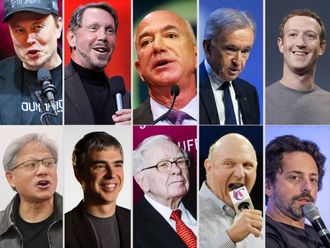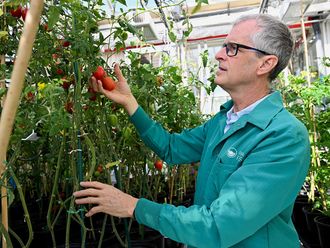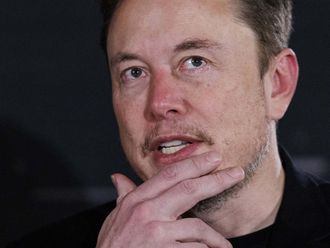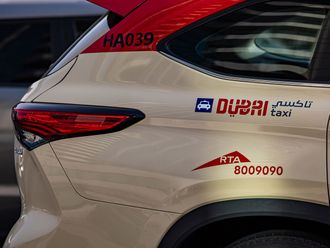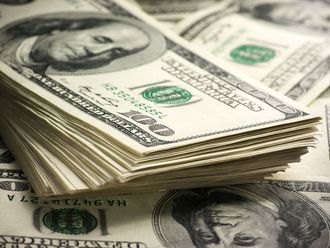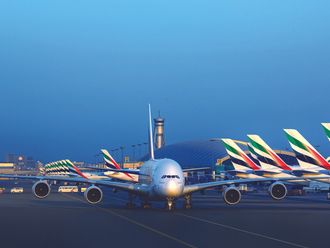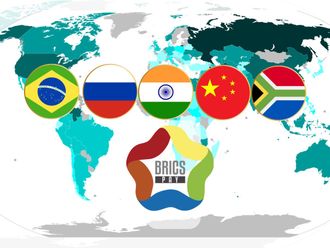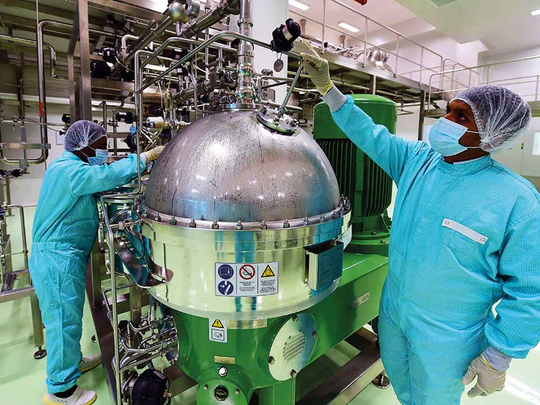
Dubai: Dubai’s ambitions to set itself up as a manufacturing base for pharmaceuticals has cleared a key initial milestone.
The “Dubai Industrial Strategy” — of which the pharma push is one of six initiatives — is now firmly in place, after receiving the sign-off from the Executive Council. The task force overseeing pharma will now pursue its short- and medium-term targets to manufacture medicines and allied health care products bearing the “Made in Dubai” stamp.
In the short-term, Dubai will look create manufacturing capacities for “super-generics”, where the molecules making up a particular drug can be delivered through multiple ways.
- Marwan Abdul Aziz Janahi | Executive Director at Dubai Science Park
For instance, “the molecule in paracetamol is the same but let’s say it can be taken through a patch or a spray,” said Marwan Abdul Aziz Janahi’s, Executive Director at Dubai Science Park (formerly DuBiotech) and Chairing Member of the Pharmaceuticals and Medical Equipment task force.
“Super-generics carry much higher margins than base generics, and a key short-term goal for Dubai would be to build enough capacities in that.
“The other one would be “nutraceuticals”, which are essentially food supplements. We are going to those players in either category and telling them why they should be here.”
Competition
Clearly, Dubai is not taking the easy way out, which would have pushed for generic drugs. These are essentially variations of extremely vital medicines that have been removed from patent protection. But they carry much lower margins, and would have faced intense competition from low-cost manufacturing bases in South Asia.
A third element will be in the field of “biologics”, which is “among today’s most used drugs for cancer and are going through the same patent cliff”. (Biologics are medications typically featuring genetically-engineered proteins derived from human genes. In contrast, the common drugs are all based on chemical formulations.) The Dubai pharma task force is also simultaneously working on the regulatory aspect, to fast-track the future production and supply into local and regional markets.
“This will deal with drug registration, the time to market, etc …. we have a very good understanding of where we are today,” said Janahi. “We are having discussions with the federal authority handling this aspect.
“The thinking is should Dubai have one, where we create a window and still be linked to a federal approval. That’s on the agenda.
“The regulatory and IP (intellectual protocol) are the two important aspects, especially for generics. Because you have a lot of drugs that are on a “patent cliff” [moving out of patent protection].
“A lot of molecules registered for 10 years are expiring. especially in the US. It offers entry to a lot of investors who want to acquire these IPs.”
There are existing drug making capacities in the UAE, with Neopharma operating a fairly sizeable production facility in Abu Dhabi. Another entity, IDS, is also in the final stages of launching its own facility, and will become the first such to launch operations at Dubai Science Park, most likely by early next year.
Opportunities
Dubai Science Park on its own or other government-owned entities would not consider joint ventures to speed up private sector investment in pharma, said Janahi.
“Certainly not for now. But we have a lot of direction from the Executive Council that Dubai’s investment community should be involved. That puts us in touch with investors and family houses, and we get to present to them the pharma opportunities.
“It will come, features such as bridge finance. But they will need to see examples of who else has done it and are they doing well? They will need to see that we do we have an ecosystem and the right elements, such as 100 per cent ownership and a regulatory mechanism.”
The Dubai Science Park is located at Al Barsha South, and will move into a purpose-built corporate headquarters early next year.
Even as it starts work on a packed short-term agenda, the pharma task force has its eyes on the bigger picture as well. And featuring longer term goals.
“We are looking at blood plasma, essentially products derived from blood,” said Janahi. “In the region, there is not such a facility. The amount of blood collected is not enough to make one factory. And these are much needed.
“To meet our future plans, the blood plasma requirements will be met through PPPs (public-private partnerships. The blood can come from the government and the technology from private companies can be from anywhere.
“But before we get to that point, it will need a legislative change, and that will have to go through parliament.”
Factbox: Dubai’s industrial initiative takes a firm shape
The Dubai Industrial Strategy intends to build on six categories — FMCG (fast moving consumer goods), pharma (including medical devices), aluminium, aviation, maritime and heavy equipment. “The Executive Council has asked Dubai’s free zones to lead the task force responsible for this,” Marwan Abdul Aziz Janahi of Dubai Science Park. “Dubai Industrial City along with Jafza are responsible for FMCG along with heavy equipment. For pharma, we have our own task force, created in September last year. We selected people who can contribute to the strategy and in putting together an implementation plan for sectors that are valid to Dubai.”


